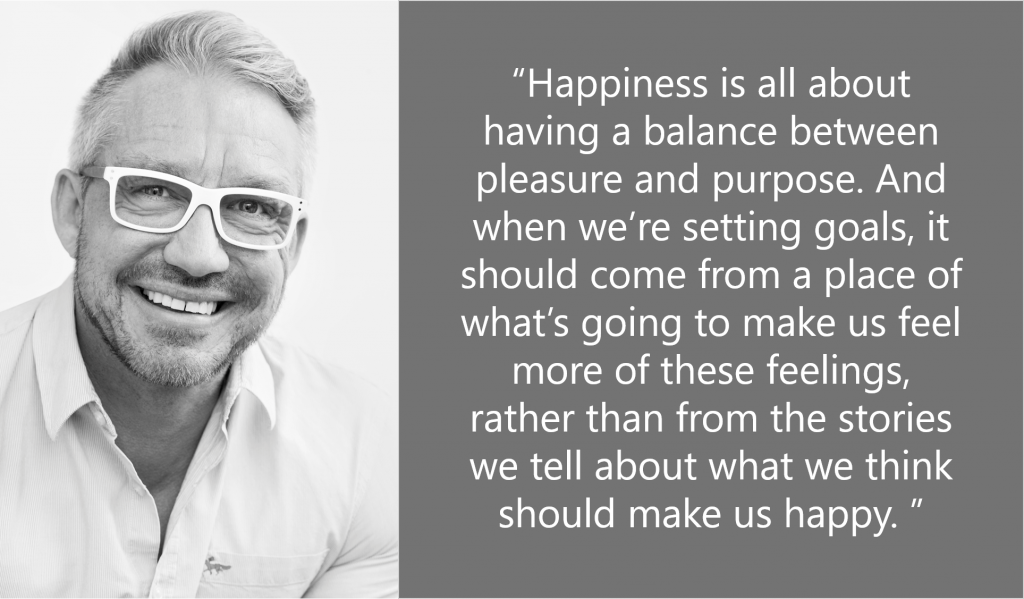Dr. Paul Dolan, Professor of Behavioural Science and internationally renowned expert on happiness, gives advice on how to embed new habits into our daily lives for long-term success.
After the season of relentless eating, drinking, and no exercise whatsoever, January marks the time for dramatic changes in people’s lives where they plan to go to the gym every morning or give up alcohol for the entire month, all while filling their friends’ social media feeds with #NewYearNewMe statuses and gym selfies.
Microsoft’s study of European consumers, however, shows that only 11% of people actually stick to their New Year’s resolutions, which I don’t find surprising at all. In fact, I’m surprised it’s as high as that! The reasons why people often fail to stick to their resolutions usually falls into one of two camps. The first group really don’t want to stick to their resolutions. They sound good when making them but it actually makes them happier when breaking them. The second group really do want to change something in their life but they often set totally unrealistic goals that they find impossible to stick to – which is usually followed by spectacularly ‘falling off the wagon’. A classic example is people choosing to give up alcohol completely for a period of time, which means that when they give into just one drink a week later, they already feel like they’ve failed and give up on the whole idea altogether – this is called the ‘what the heck effect’.
Happiness is all about having a balance between pleasure and purpose. And when we’re setting goals, it should come from a place of what’s going to make us feel more of these feelings, rather than from the stories we tell about what we think should make us happy. People tend to take a long, hard look at their outsides in the mirror this time of year, but really we should turn that attention inside and accept some of the inconvenient things about ourselves as a first step to being happier.
Never been a morning person? Probably wise not to kid yourself that you’ll magically start enjoying jumping out of bed at 6am to crack that 5k run before work on a dark winter’s morning. Better to focus on an activity you’ll enjoy at a time of day you know gives you a fighting chance. Or if you’re determined to change your alarm-clock hating ways, start realistically, like progressively setting your alarm 5 or 10 minutes earlier.
It takes about two months before something becomes a habit but we generally don’t allow ourselves long enough to embed these habits into our daily lives and we often give up far too easily. Our minds are lazy so our brains want to make life easy by looking for habits in our behaviour to make up a routine. So my advice is, if you want to do something, make it easy, and then stick at it for a while until you don’t have to think about it again. If you don’t want to do something, make it hard for yourself to do.
So if there were three ‘golden rules’ that can help you achieve your health and fitness goals in the real world, I’d say:
- Make it easy. Although we like to think of ourselves as the ones in control, our surroundings shape us more than we think, so design your environments or situations to work for you. Put a date at the gym in a colleague’s diary for straight after work so you can’t change your mind, or make sure you can access a healthy recipe easily when you’re in the supermarket to avoid buying that pizza or chocolate cake you pass.
- Plan, plan and plan again. The devil really is in the detail! Work out how you’re going to implement those changes. There’s a whole body of literature that shows ‘implementation intentions’ are much more effective than just plain, old intentions. So be REALLY clear about exactly how and when you’re going to do something and make sure it works with your everyday life if you want it to become habits.
- Make it bite-size. You’re more likely to stick to things that are small and attainable – you don’t set yourself the goal of running a whole marathon, you set yourself a goal of running 5k, then 10k, then 15k and so on. So set yourself bite sized, achievable but challenging steps that feel easy, and most importantly of all, put a smile on your face and bring joy to your life.
Simple, realistic changes can bring both pleasure and purpose into your life. If you think you know what will make you happy, don’t just think about it – create the life in which it’s possible, and then see longer-term results.





